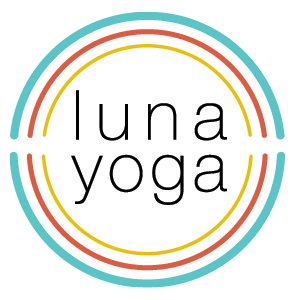Reflecting on the Jivamukti Focus: Mauna (Silence) is Golden
Satyam Jñānam Ānandam Brahma
“Silence isn’t just the absence of speaking, it’s the absence of thinking.” - Shri Brahmananda Sarasvati
When I was in my twenties I lived in Spain for 2 years and taught English at an elementary school for children aged 3 to 12 years. I love kids, so I really enjoyed being with the younger ones, even if it was mostly playing, taking them to the bathroom and wiping their noses. There was one particularly noisy 3-year old class taught by a teacher named Maria. She would be so happy when we came in to teach English, to give her a little break. I remember one day she sat at her desk with her face buried in her hands and she told me, “When I get home at the end of the day and my mother asks me how it was, sometimes I tell her, ‘Please don’t speak to me for a while. I just need to listen to the silence for a moment.’ ”
Our minds, just like our bodies, need rest, need space. And yet for many of us, our minds are in a constantly whirling, overloaded state. It doesn’t help that we have so much outside input constantly bombarding our senses, and a whole network of information at our fingertips through our computers and phones.
I got into an interesting conversation about technology and kids with our driver, Ivan, when we hosted our last Yoga & Surf Retreat in Costa Rica. We had quite a long distance to travel and so I was taking the opportunity to practice my Spanish with him. ”Children these days have no more time to wonder, to use their imagination”, he said. He talked about how it’s too easy to just pick up your phone or log on to your computer screen to look things up, that there was no more space for contemplating and adventuring to somewhere else, like a library, to seek out the answers to our questions. And that without contemplation and a sense of adventure, their creativity suffers and wanes.
How does the mantra Satyam Jñānam Ānandam Brahma connect with the title of the focus of the month “Silence is Golden”?, you may ask. Here are my thoughts…
Satyam - Truth
Truth in yogic terms would be something that is absolutely true. In yoga when we seek the answer to the questions, what is real? and what is true?, we are looking for that which is unchanging.
How many times have you found your mind clouded with thoughts of judgement and criticism? About others, about yourself? Have you ever stopped to ask, “is it true?” or “is that absolutely true?”. To get to the unchanging truth, we must first learn to quiet the constantly shifting mind.
Jñānam - Knowledge
Sandy addresses this in the focus when she writes:
Alan Watts describes real silence as that “in which we stop thinking and experience reality as reality is. Because after all, if I talk all the time, I can’t hear what anyone else has to say!”. We cannot listen when we are full; emptiness allows space for resonance.
Essentially, how can we learn anything if we are already full? Knowledge can only be garnered through receptivity, both from without and from within. We can’t learn from others if we are unwilling to let go of our own notions and ideas, and we can’t access our deeper knowledge if we cling to what we think we already know.
Ānandam - Bliss
As our teacher Sharon Gannon says, our true nature is “satchidananda: truth, knowledge, and mostly bliss.” Our essential nature is joy, love and compassion. But if we identify with the fluctuating mind, we won’t be able experience it that way. We must quiet the mind to sense it.
Brahma - Absolute
The absolute is that which remains unchanged, that which is constant and eternal. We might have different names for this idea or concept, but we all seek it out in same form or another. Once again, we must dive deep beneath the surface, beyond the shifting body and mind to a place of stillness, in order to uncover it.
The practice of silence is not only beneficial, but essential for our overall well-being, sense of stability, connection and inner peace.
Read Advanced Certified Jivamukti Teacher Sandy King’s full Jivamukti Focus of the Month here.
Some practical tips and exercises you can incorporate more silence and stillness in your everyday life…
Spend 3-5 minutes, first thing in the morning when you wake up, or at night before going to bed, to sit in meditation.
Take a few minutes at the beginning or at the end of the day to journal, clearing the mind of any thoughts weighing on the mind, by getting them down on paper.
Don’t look at your phone/computer/emails until you get to work.
Don’t listen to anything on your commute to work in the morning or back home at the end of the day. Instead, make your trip a walking meditation, noticing the scenery around you.

